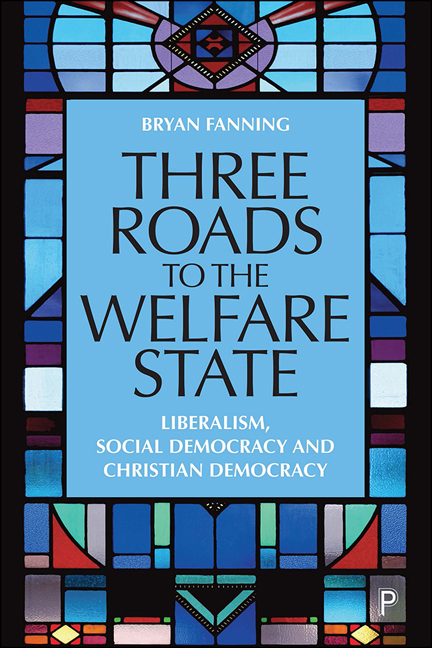Book contents
- Frontmatter
- Contents
- About the author
- Preface
- 1 Three roads
- 2 The invention of laissez faire
- 3 Utopian socialism
- 4 Reform liberalism and technocracy
- 5 Catholic social thought versus modernity
- 6 The case for social democracy
- 7 Social engineering versus democracy
- 8 The rise of neoliberalism
- 9 European Christian democracy
- 10 Legacies
- Notes
- Select bibliography
- Index
4 - Reform liberalism and technocracy
Published online by Cambridge University Press: 13 May 2022
- Frontmatter
- Contents
- About the author
- Preface
- 1 Three roads
- 2 The invention of laissez faire
- 3 Utopian socialism
- 4 Reform liberalism and technocracy
- 5 Catholic social thought versus modernity
- 6 The case for social democracy
- 7 Social engineering versus democracy
- 8 The rise of neoliberalism
- 9 European Christian democracy
- 10 Legacies
- Notes
- Select bibliography
- Index
Summary
Laissez faire constituted just one aspect of the bundle of liberal ideologies that became influential during the industrial revolution. It coexisted uneasily with utilitarianism, the idea of ‘the greater good of the greater number as the right and proper action’ as influentially defined by Jeremy Bentham (1738–1932), even though Bentham also subscribed to the logic of liberal political economy in the running of prisons and workhouses. Laissez faire was enabled by the resistance of nineteenth-century liberal politicians and thinkers like John Stuart Mill towards extending the vote to the industrial working and poor classes. Yet it came to clash with the technocratic social policy advocated by Edwin Chadwick (1800–90) and other Benthamite reformers. Within liberalism, faith in progress abided, but there were differences between those who believed that all that was needed to ensure this was to enable free trade and individual autonomy, and those who believed that the invisible hand needed the guiding hand of laws and regulation. Both laissez faire and the belief that experts were best placed to make utilitarian calculations about the public interest sat comfortably with prevalent understandings of liberalism as a political philosophy.
Bentham's ‘utilitarianism’ proposed a calculus for determining what the aims of public policy and legislation should be without recourse to politics and the opinions of the uninformed masses. Utilitarian liberalism as an engine of reform relied on administrative rationality and expertise rather than electoral politics. Followers of Bentham, like Mill, called themselves philosophical radicals. They maintained that institutions or practices should be swept away if these failed to pass the test of utility. Bentham himself proposed utopian for-profit institutions to replace inefficient societal responses to crime and poverty. Whether liberals championed free markets or saw themselves as institutional reformists, they generally resisted giving the right to vote, and therefore extending political influence, to the working and poorer classes.
Initially, laissez faire flourished because it chimed with eighteenth-century understandings of the limited capacity of government. Thomas Robert Malthus, in his Essay on the Principle of Population (1798), influentially posited that, unless checked, the population would come to exceed the amount of food that could be produced.
- Type
- Chapter
- Information
- Three Roads to the Welfare StateLiberalism, Social Democracy and Christian Democracy, pp. 55 - 76Publisher: Bristol University PressPrint publication year: 2021



